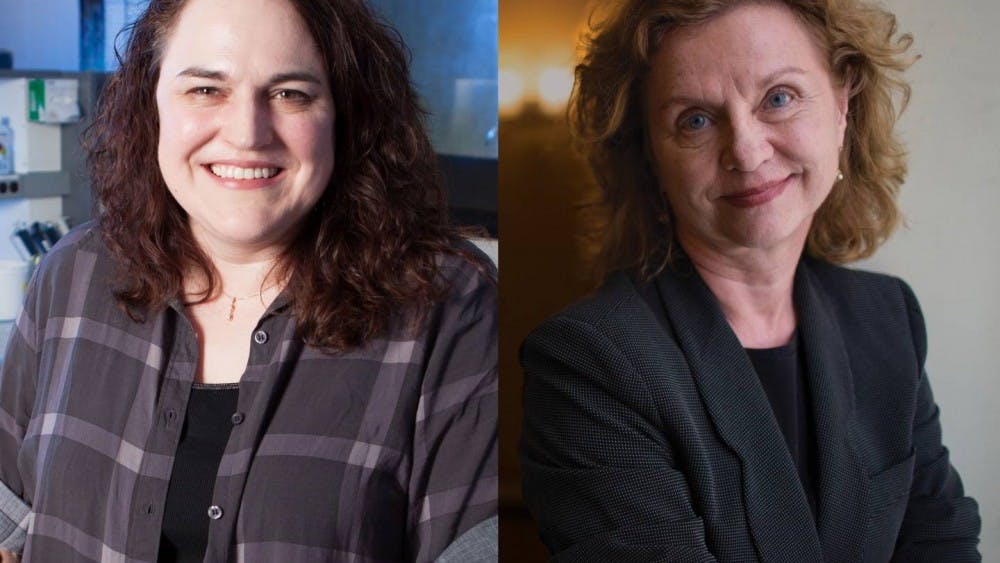Princeton University faculty members Rebecca Burdine and Elke Weber have been named the 2018 fellows of the American Association for the Advancement of Science (AAAS). They will be honored on Feb. 16 at the 2019 AAAS Annual Meeting in Washington, D.C.
The AAAS, an U.S. international non-profit organization and the world’s largest general scientific society, has over 120,000 members and is the publisher of the scientific journal “Science.”
Rebecca Burdine, an associate professor of molecular biology, was recognized for her work in the field of developmental genetics. She used zebrafish to study the genes involved in human diseases and processes such as heart development and the causes of idiopathic scoliosis.
Zebrafish are used in modeling human disease since 70 percent of human genes are also found in zebrafish. In addition, they have similar organ pathways, helping to model the progression of human diseases that affect how organs function.
Burdine expects to continue her research in the near future and emphasizes the importance of students in her work.
“A lot of the accomplishments that I get to take credit for are actually done by the students in the lab,” Burdine said. “We all move science forward as a group, so it’s important that they get their recognition.”
Elke Weber, the Gerhard R. Andlinger Professor in Energy and the Environment and a professor of psychology and public affairs, was recognized for her 30-year-long research on humans’ ability to make decisions under risk and uncertainty, as well practical applications of this research to real world problems like climate change.
Weber explained the decisions that people make with respect to their environments are the “perfect storm” for applying cognitive psychology, since wise decisions must be made under obstacles like a time crunch. These climate change decisions are further complicated by problems of collective action.

“Benefits don’t necessarily accrue to you or your future self,” Weber said. “It’s for future generations in far away places, so I figured that if we can solve these kinds of issues [in cognitive psychology], then everything else is the icing on the cake.”
Prior to coming to Princeton, Weber was a professor at Columbia Business School. She moved to Princeton two-and-a-half years ago because she wanted to do research more focused on public policy.
“I know human nature and myself well enough to know that it’s easier to do new things in new places, while in old places you have your habits,” Weber explained.
Both professors expect to continue their current projects, but neither can share specifics of their work until their projects conclude.









